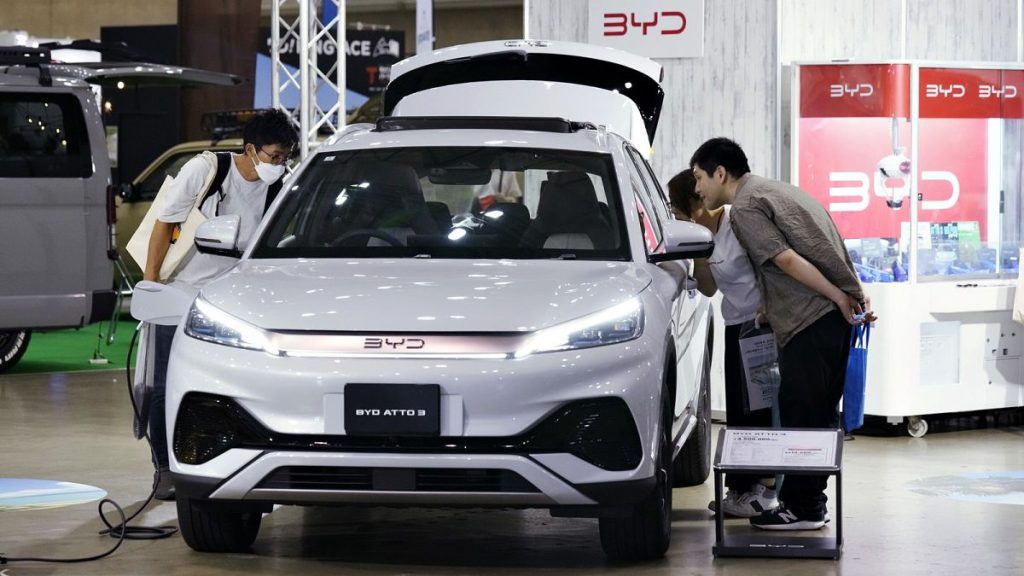Trade frictions between the European Union (EU) and China have escalated due to Beijing filing a lawsuit against the EU at the World Trade Organization (WTO) over tariffs imposed on Chinese electric cars. The EU has imposed duties ranging from 7.8% to 35.3% on Chinese electric vehicles, on top of an existing 10% levy, arguing that Chinese EVs benefit from excessive subsidies leading to artificially low prices in global markets. These measures will remain in place for five years to offset Beijing’s financial aid and protect EU firms in the EV sector.
China has raised concerns about the EU’s anti-subsidy investigation on Chinese electric vehicles, calling it a protectionist practice of unfair competition under the guise of fair competition. The Chinese Ministry of Commerce has filed a lawsuit under the WTO dispute settlement mechanism to challenge the EU’s tariffs. While China has not announced any retaliatory measures, it expressed a willingness to continue negotiations with the EU to find a solution that could reverse the tariffs, such as establishing minimum prices for Chinese EVs. However, EU officials warn that enforcing minimum prices on such a complex product could be challenging for customs officials.
The Chinese Chamber of Commerce to the EU has criticized the tariffs as arbitrary, unjustified, and politically motivated. They have also expressed concerns that the tariffs could complicate ongoing negotiations about setting minimum prices for Chinese electric vehicles. The lack of progress in negotiations before the decision deadline has been disheartening for the chamber, which is actively involved in the negotiation process. Although the Commission has not yet received the WTO lawsuit, EU officials have defended their investigation as fact-based, diligent, and compliant with WTO rules, serving as the legal basis for the imposed import tariffs.
The EU has emphasized the need to protect its car industry from the growing threat posed by Chinese electric vehicle producers benefiting from government subsidies. Chinese EV manufacturers have significantly increased their market share in Europe, raising concerns about the potential closure of car plants and loss of jobs in the industry. The EU’s measures aim to prevent Chinese EVs from dominating the European market at the expense of domestic manufacturers. While the EU remains open to exploring a potential solution with China, the enforcement of minimum prices for Chinese electric vehicles remains a point of contention between the two parties.
As the trade dispute between the EU and China intensifies, both sides are hoping to reach a resolution that addresses the concerns raised by the tariffs on Chinese electric vehicles. The EU has focused on protecting its car industry and preventing Chinese EVs from undercutting European producers due to government subsidies. China, on the other hand, has challenged the EU’s anti-subsidy investigation, accusing the bloc of engaging in protectionist practices. The negotiations between the EU and China continue, with both parties expressing a willingness to find a mutually acceptable solution to the trade frictions involving electric vehicles. The outcome of the WTO lawsuit filed by China against the EU will likely have significant implications for the future of trade relations between the two economic powers.


